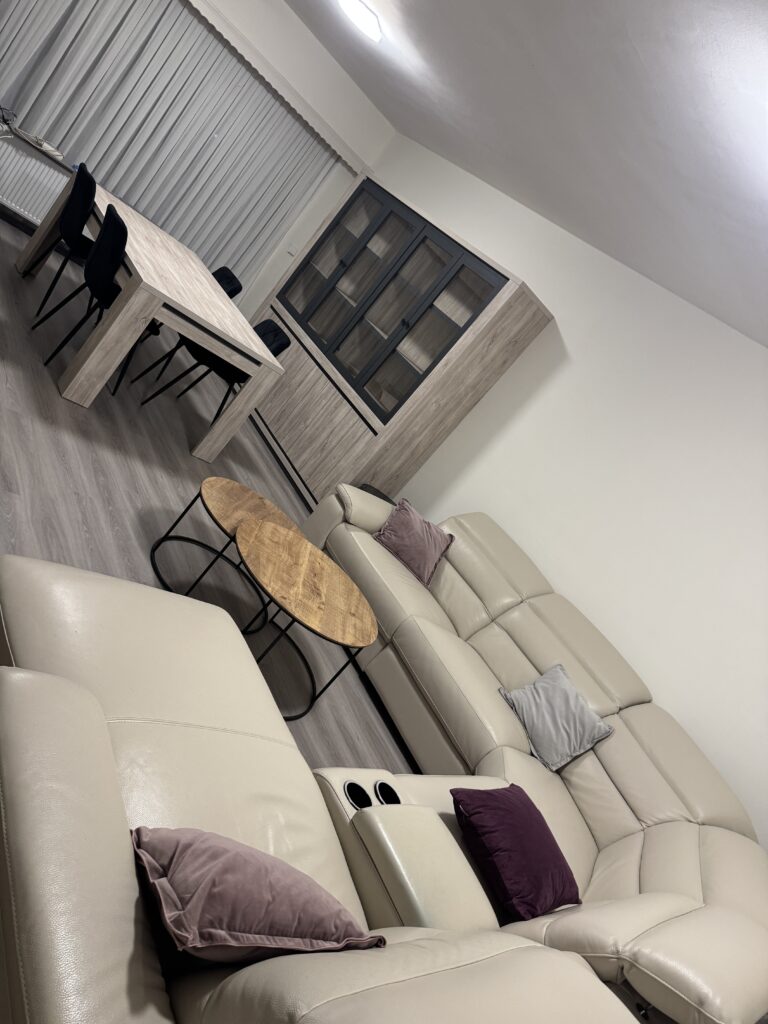In August 2025, I was still in my van.
Somewhere alone in the south of France.
Not on vacation.
But on the run.
From the chaos. From the pain.
From the feeling of being completely drained by a situation I no longer had any control over.
The plan was simple: to create distance.
From her. From the fight.
From everything that had stripped me to the core.
But the distance got shorter…
Suddenly, I began receiving messages about my daughter.
About how my ex-wife – her mother – stood outside her door, shouting.
Drunk. Screaming. Threatening.
How she denied her access to her own savings so she couldn’t go on a trip.
How she threatened physical violence.
And that’s when I knew: this wasn’t about us anymore.
This was about her.
First it was Alan (my best friend) who was used to hurt me.
Then she tried again with “Mon Mec.”
And now?
Now it was my own daughter’s turn.
Each time, someone closer.
Each time, someone she could use to break down my foundation a little more.
Because that’s how it works:
When a person with narcissistic traits can no longer hurt you directly,
they go after the people who can.
My daughter was being used as a weapon.
And me?
I couldn’t just stand by and watch from a distance anymore.
That’s when the decision was made:
I would return to Belgium.
For one reason only — her.
She told me herself she wanted to get away from her mother as soon as possible.
That she couldn’t handle it mentally anymore.
That the façade of “my children are my everything” on Facebook
had nothing to do with the reality behind closed doors.
And I believed her.
Because I know the pattern.
Because I’ve lived the pattern.
What happened today…
On October 14th, I suddenly received a call from an English-speaking man.
A complete stranger.
He told me my daughter desperately needed help.
That she had been locked inside.
That her phone had been taken away.
That she was panicking and crying.
I was in the shower, getting ready for an appointment.
But everything stopped.
There was only one thing that mattered: protecting my child.
I drove straight to her.
The police had already been contacted.
They were on the scene when I arrived.
My daughter was brought outside and came home with me.
The phone?
A gift from me.
In my name.
Paid for with my private bank card.
Still, they tried to keep it — claiming it was “technically” bought through Turbo.
That is absolute nonsense.
And what kind of parent takes away a birthday gift,
just because it arrived six months later?
Worse, she was sent away without a phone,
cut off from her friends and the outside world.
That’s not just cruelty.
That is theft.

And yet… despite everything…
I managed.
Without income.
Without support.
Without resources.
While everything was blocked, delayed, or taken away.
I did it anyway.
I got an apartment.
For Anaïs.
For myself.
For peace.
A safe place where she can breathe.
Where she doesn’t have to fear control, anger, or threats.
And I did it because I made her a promise —
that I would help her,
and that I would protect her.
Analysis – Narcissistic Behaviour Unmasked
The strategy:
“If I can’t hurt you, I’ll hurt the ones you love.”
A narcissist will always find a way to regain control.
When you grow stronger, gain distance, or break free,
they shift their focus.
First, they’ll try through your work, your friends, your new relationships.
When that fails, they’ll turn to what you love most — your children.
Common narcissistic behaviours in this situation:
- Using a child as a weapon: turning them into tools for punishment.
- Restricting freedom: locking them up, taking away communication, blocking access to money.
- Playing the victim: projecting the image of a “caring parent” online, while the child quietly suffers.
- Sabotage and control: financial blockades, legal manipulation, emotional exhaustion.
- Creating illusions: convincing others of lies through repetition and distortion.
What can you do if you recognize this?
- See the behaviour for what it is: not care, but manipulation.
- Protect your child – legally and emotionally.
- Document everything – facts, messages, screenshots, proof.
- Stay calm and factual – even when it’s hard.
- Don’t be naïve about forgiveness – some wounds require distance, not reconciliation.
To reflect on:
“A narcissist doesn’t use what they need — they use what you can’t live without.”
“Form your opinion of someone based on your own experience,
not on the stories told by others — especially if those stories always come from the same person.”
In the end
I am not a perfect man.
I’ve made mistakes.
But I know who I am as a father.
And I know what I’m fighting for.
And why I’m writing this.
This is my truth.
Not to seek pity.
Not to hurt anyone.
But to be clear.
For those who want to see.
For those who dare to look beyond the façade.
For those who doubt, or stay silent,
but quietly live through the same pain.
You are not alone.